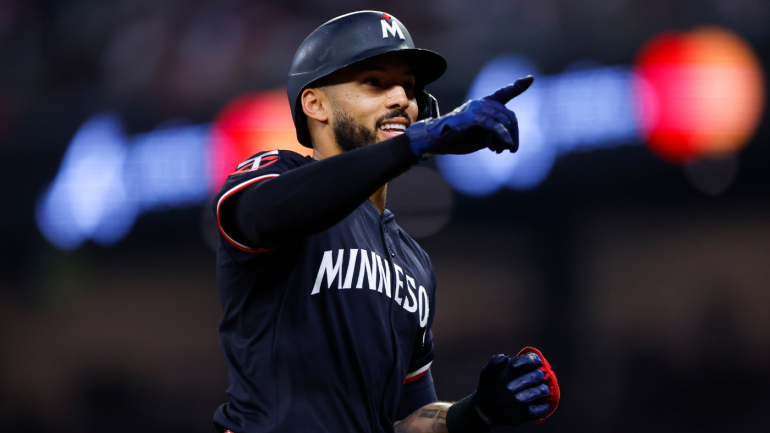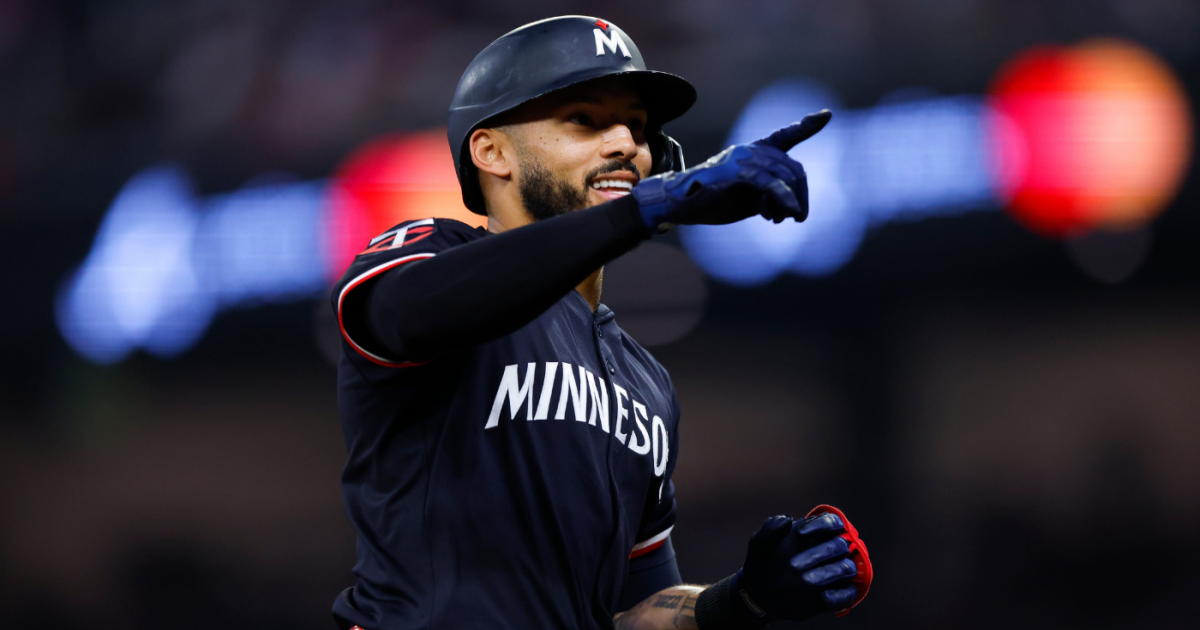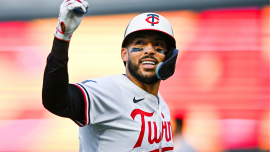
Getty Images
The Houston Astros and Minnesota Twins pulled off a trade deadline stunner on Thursday, agreeing to a swap that will send longtime shortstop Carlos Correa (and a significant amount of money) back to his Texas roots.
As is tradition around these parts, CBS Sports is giving every notable trade the grades treatment. That means analyzing each player involved and handing out a latter grade. Before we get to that, though, let’s first take a look at the full terms of the trade:
- Astros receive: 3B Carlos Correa, $33 million
- Twins receive: LHP Matt Mikulski
Onward.
Astros grade: A
First, the financial component. Correa, 30, is under contract through at least the 2028 season, with club options for the 2029-32 campaigns that could vest based on him reaching certain plate appearance thresholds. At absolute minimum, he’ll make about $104 million through the next three and a half years. The Twins are slated to cover $33 million of that amount, according to the Star Tribune. The leaves the Astros on the hook for about $71 million.
Money aside, what does Correa bring to the Astros? Well, probably not the level of production that Houston fans remember from his first tour of duty. He’s batted .262/.335/.427 (109 OPS+) since Opening Day 2023, a far cry from his 127 Astros career OPS+. Correa can still put a charge into the ball, with more than 47% of his batted balls clearing the 95 mph threshold, but he’s not making authoritative contact on the same path that he used to back in the day. Take a look at the table below, which shows his average launch angle on hard-hit balls by season:
SeasonAverage LA2016
10.2 degrees
2017
11.5 degrees
2018
11.8 degrees
2019
15.6 degrees
2020
12.5 degrees
2021
11.8 degrees
2022
13.4 degrees
2023
10.1 degrees
2024
9.2 degrees
2025
7.1 degrees
What that suggests is that more of Correa’s best quality of contact is being hit at low-flying trajectories. It’s no wonder, then, why his current home-run pace prorates to a would-be career-low 11 over 150 games. It’s to be seen if the Astros can help him get back to the way he used to be, or if this is simply the new norm. But this version of him might take some getting accustomed to if you’re an Astros fan who remembers him at the peak of his power.
Speaking of disorientating sights, it was commonplace to project Correa as a future third baseman when he was an amateur prospect. This isn’t quite what people had in mind, replacing an injured Isaac Paredes in the midst of a pennant race.
Still, Correa should be able to manage the hot corner in due time — he has enough arm for it and his declining range won’t be on full display as often — but he’s never played it before, not even an inning, not even in the minors. Until that indeterminable date of mastery, these Astros will again have to stomach some on-the-job training. That may not be an issue; remember, these Astros were OK opening the year with Jose Altuve and Cam Smith, two career infielders, stationed in the outfield corners.
Can Correa be a productive member of the Astros lineup? Yes. Is he likely to channel that old magic that once made him a face-of-the-franchise type? That seems less likely given his encroaching 31st birthday, his physical history, and some of his underlying indicators. Considering that this trade is purely about the opportunity cost, it’s hard to fret about such matters.
Twins grade: F
This isn’t a baseball trade as much as it’s a book-balancing maneuver.
The Twins made plenty of trades this week, and in all the others they received a reasonable return. Here, for an aging star who wanted to be in Minnesota? They fetched a 26-year-old with a career 6.46 ERA whose next appearance above High-A will be his first. Mikulski isn’t the punchline, though. No, that would be the Twins ownership group.
Minnesota’s tight budget has been an open secret across the industry for a few years, with a messy local broadcast deal serving as the sin eater and the restraint that tied the hands of the Twins’ capable front office. The Twins franchise has been for sale for a while now, too, and it’s hard to not view this trade as a way to reduce a buyer’s inherited debt.
Baseball is a numbers game, of course, but in modern times there’s been a most unwelcome emphasis placed on one particular figure: the owner’s profit. The game is at its worst when that’s the focus. If you’re a Twins fan, you’re feeling that right now. Here’s hoping the front office will be allowed to reinvest at least some of the savings into the roster this winter. But, for now, there’s no reason to provide this ownership group with the benefit of the doubt.


